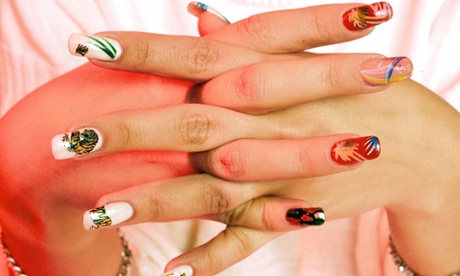
In the business of cheap manicures, the numbers don’t add up. A year-long investigation of New York City’s nail salons by The New York Times has revealed labor abuses and health issues such as respiratory illnesses and multiple miscarriages believed to be linked to chemical exposures at work. The message was clear: salon workers are paying a dear price for the cheap manicures enjoyed by millions of consumers.
In response to The New York Times’ findings, New York state governor Andrew Cuomo announced emergency regulations for nail salons to take effect immediately. Cuomo said a task force will be assessing salons across the state, requiring them to pay back wages and install ventilation systems where necessary.
But what can consumers do? And what more should salon owners being doing? If consumers boycott nail salons, millions of women with few other income opportunities may find themselves out of work. Meanwhile, salon owners worry that installing ventilation systems and switching to non-toxic products will mean they need to raise prices and risk losing customers. There is hope, however. Many occupational safety issues have harnessed the combined forces of media attention, consumer pressure, and government oversight to inspire change.
Here are five ways consumers and businesses could help the beauty industry pretty up this year:
1. Get rid of the cheap manicure
You cannot sell a $5 manicure and protect workers at the same time. That low price is likely a sign of low wages – the federal minimum wage is $7.25 an hour, while the state minimum in New York is $8.75 an hour. It may also correlate to a more toxic work environment. The lowest cost wholesale nail polish, which includes dibutyl phthalates and toluene, among various other chemicals of concern, runs about $100 for 144 bottles, while nontoxic brands that include none of these chemicals average $200 for 36 bottles. Raising the price of nail services requires a collaboration between consumers and business owners.
2. Stop letting the beauty industry regulate itself
If the tobacco industry were allowed to regulate itself, it would no doubt assert that nicotine and tar are perfectly safe in the doses consumed in cigarettes. Business owners and citizens need to throw their political capital behind real reform of the 1938 Food, Drug and Cosmetics Act and the 1976 Toxic Substances Control Act.
At the salon level, proper ventilation should be required and enforced by local labor boards and the federal Occupational Safety and Health Administration. Concerned consumers could consider toting copies of OSHA’s safety handout for salon workers next time they go for a mani/pedi, and salon owners should ensure that these brochures are available and properly explained to their employees.
3. Boycott toxic products, not salons
Some hair and nail products that have been proven potentially harmful to women’s health are still allowed in salons. For example:
- A Brazilian blowout: the chemicals in this product produce formaldehyde, a known carcinogen.
- Nail polishes containing dibutyl phthalate (DBP) or toluene: California classifies DBP as a reproductive and developmental toxicant, and the European Union banned the use of DBP in cosmetics and personal care products.
- Gel nail polishes: chemicals in these products typically include methyl acrylate or butylated hydroxyanisol (BHA), or sometimes both. They also are often set with ultraviolet light. US National Toxicology Program, part of the National Institutes of Health, has classified BHA as “reasonably anticipated to be a human carcinogen” based on evidence of carcinogenicity in animal studies.
4. Support salon worker unions
When salon workers first began to talk about unionizing in 2009, several national salon chains moved to quash those efforts. Although the National Labor Relations Board interceded in some egregious cases – Regis Salons’ move to show anti-union training videos and have workers sign contracts stating they would not join a union, for example – the industry remains remarkably non-union.
Think what you will about unions, in an industry where safety and unfairly docked wages are top concerns, empowering workers and giving them a voice is often the first step towards change, according to the International Labor Organization. Businesses that embrace, rather than fear, unionization could benefit from good press and the ability to recruit top talent.
5. Extend basic rights to all employees in your business, irrespective of their immigration or employment status
Oftentimes, salon workers are not extended standard rights – such as fair wages, breaks, and protection – from occupational hazards because they are hired as independent contractors, or their immigration status may be suspect, according to the American Civil Liberties Union. Salon owners do themselves and their customers a disservice when they do not equally afford all members of their business fair and equitable treatment. They may also open themselves up to legal and reputational liabilities that could ultimately cost far more than paying everyone fairly and ensuring worker safety.

